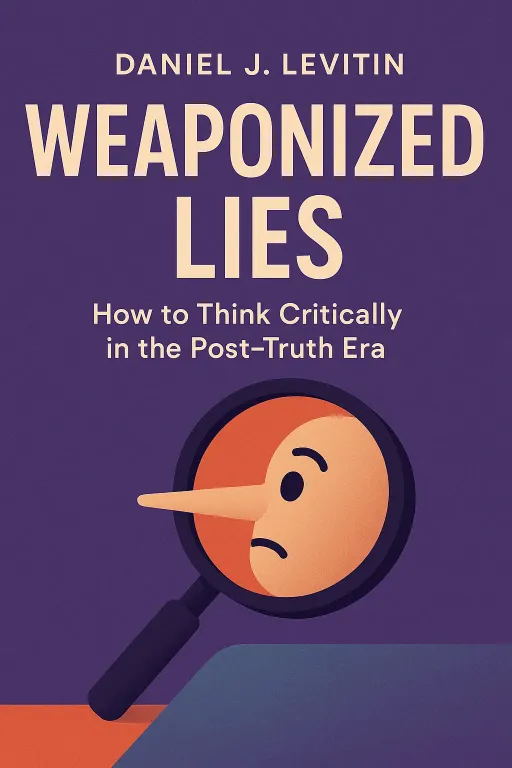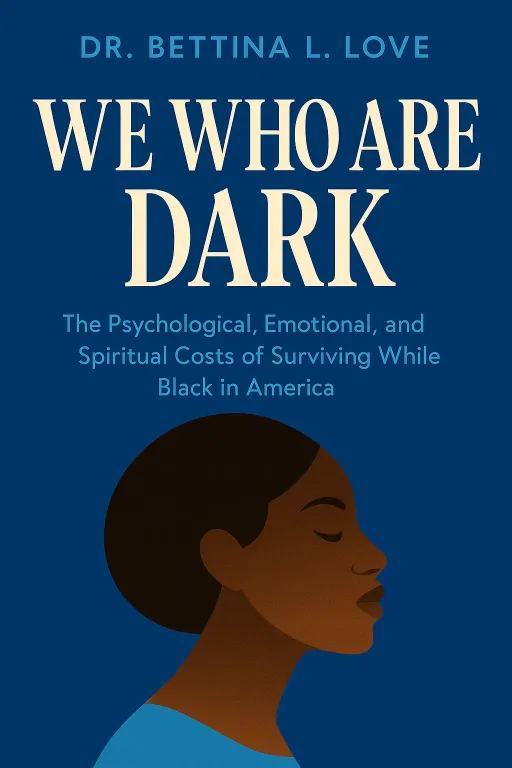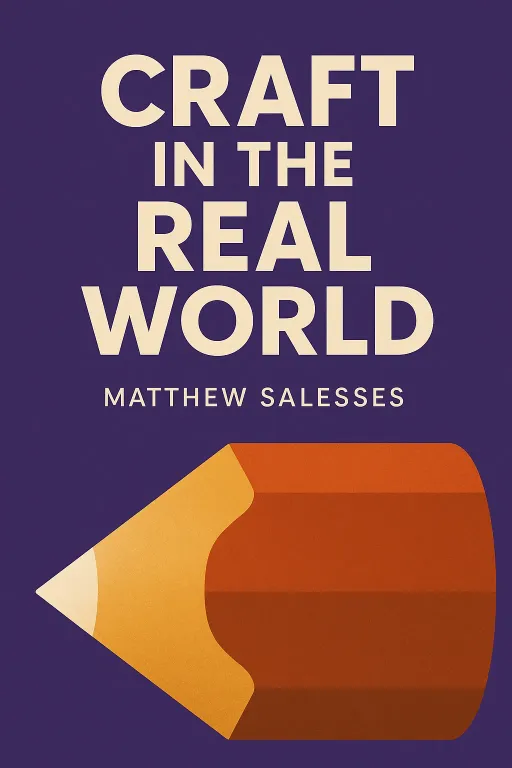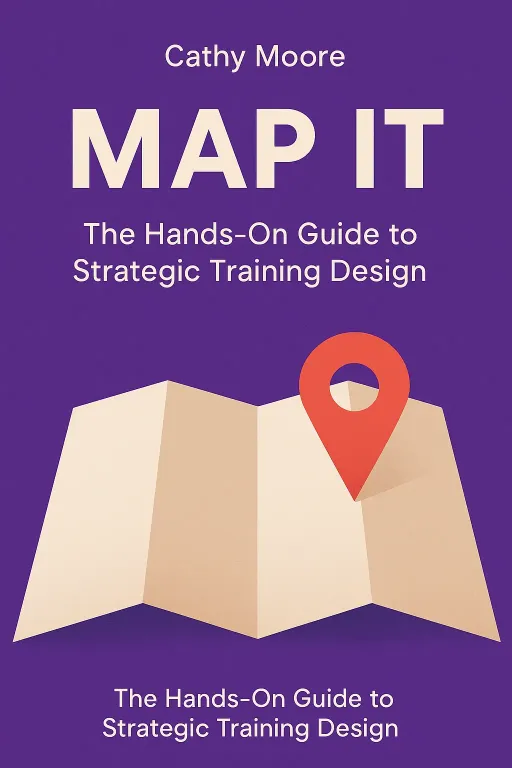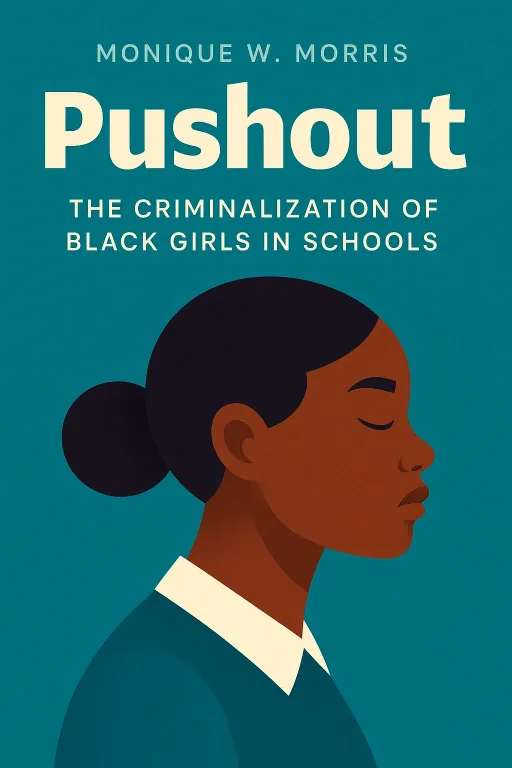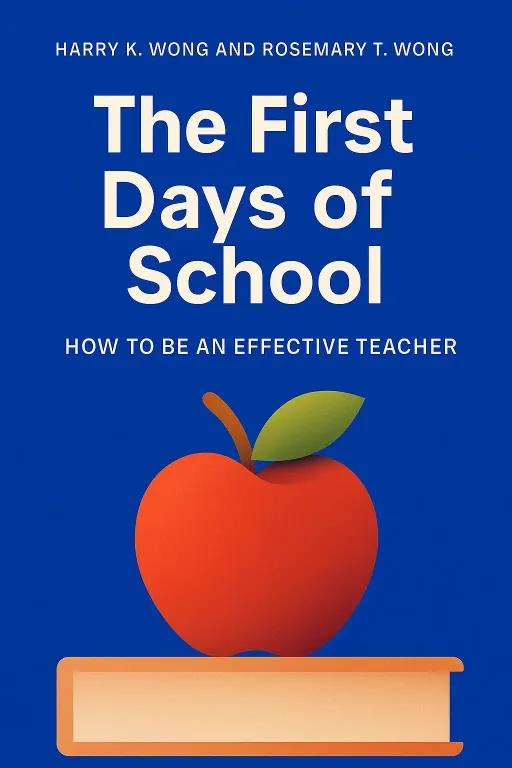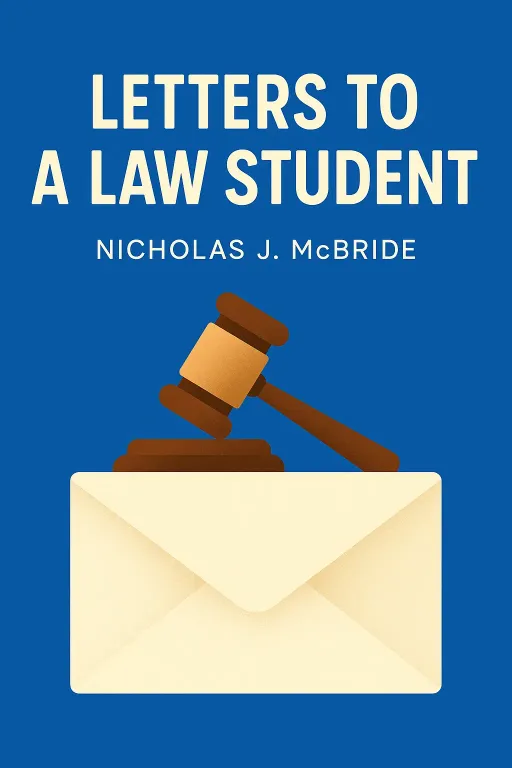
Letters to a Law Student
11 minIntroduction
Narrator: In 2013, a strange thing happened at Cambridge University. During the admissions round for its prestigious law program, several colleges, including Pembroke, found themselves unable to fill all their available spots. This wasn't for a lack of applicants; the pool was as large as ever. The problem was a startling lack of qualified candidates. Tutors discovered that applicant after applicant, despite having stellar grades, lacked the fundamental skills required for legal study: the ability to argue logically, think with rigor, and express themselves persuasively. This wasn't just an isolated incident; it was a symptom of a worrying trend, a decline in the country's intellectual capital.
This very crisis prompted Nicholas J. McBride to revise his classic guide, Letters to a Law Student. The book is structured as a series of letters to a fictional student named Alex, but its true purpose is to serve as an antidote to this decline. It aims to transform how students think, argue, and learn, providing a comprehensive roadmap not just for surviving law school, but for mastering the intellectual discipline that underpins the legal profession.
Law is a Grand Conversation, Not a Set of Rules
Key Insight 1
Narrator: One of the first hurdles for any law student is understanding what law actually is. McBride argues against viewing it as a static collection of rigid rules. Instead, he presents a powerful metaphor: law is an ongoing, centuries-long conversation among lawmakers—judges and legislators—about what kind of society we should live in. This conversation grapples with fundamental tensions: the need for individual liberty versus the need for public safety, the importance of property rights versus the demands of social welfare.
To illustrate this, the book points to historical cases that represent different voices in this debate. In the 1765 case of Entick v Carrington, King's messengers, acting on a warrant from a Secretary of State, broke into the home of a writer named John Entick, seizing his private papers. Entick sued for trespass. The court, led by Lord Camden, ruled in his favor, declaring that every invasion of private property is a trespass unless explicitly justified by law. Lord Camden famously stated that "papers are the owner's dearest property" and that the government cannot simply intrude on a person's life without clear legal authority. This case stands as a powerful voice for the "rule of law," the principle that we should be governed by law, not by the arbitrary whims of powerful men.
A Law Degree is an Exercise in Mental Transformation
Key Insight 2
Narrator: McBride contends that the primary reason to study law is for the "brain training" it provides. It teaches students to think carefully, imaginatively, and sensibly, moving beyond mere instinct or emotion. This is the core skill that the Cambridge admissions tutors found lacking. Law demands a specific way of thinking, one that breaks down complex problems into their constituent parts and analyzes them with precision.
The book uses a hypothetical murder scenario to demonstrate this process. Imagine a terrorist kidnaps a man's family and threatens to kill them unless he delivers a bomb to an ambassador. The man, D, complies. The bomb explodes, killing the ambassador, V. Is D guilty of murder? A non-lawyer might rely on instinct, but a law student learns to dissect the issue. The definition of murder requires that (1) D's actions caused V's death, (2) D intended to kill or cause serious harm, and (3) D had no lawful excuse. While D's actions did cause V's death, he did not intend to kill V; his intention was to deliver the package to save his family. This careful distinction between foresight and intention is the kind of rigorous, analytical thinking that a legal education cultivates.
The Astonishing Hypothesis: Why a Law Degree Matters
Key Insight 3
Narrator: In the legal world, there exists what McBride calls the "astonishing hypothesis." In its strong form, promoted by figures like former UK Supreme Court Justice Lord Sumption, it claims that a non-law degree followed by a conversion course is better preparation for a legal career. The argument is that non-law graduates possess a superior "general culture." McBride systematically dismantles this idea, arguing that a law degree, with its connections to philosophy, economics, and politics, is uniquely suited to developing this culture.
He also attacks a key premise of the hypothesis: that one can simply "find out" the law when needed. To show the flaw in this, he tells the story of a petrol refinery explosion that damages nearby homes. A person without legal training goes to a law library to see if the homeowners can get compensation. They find no book on "petrol refinery explosions" and are pointed towards the vast, complex subject of tort law. Without a foundational understanding of how legal knowledge is structured, they would never discover the relevant legal principle, the "rule in Rylands v Fletcher." This illustrates that legal knowledge isn't just a collection of facts to be looked up; it's a structured system of principles that requires formal training to navigate effectively.
Arguing Effectively is a Teachable Skill
Key Insight 4
Narrator: A central theme of the book is that effective argumentation is not an innate talent but a skill that can be learned. McBride distinguishes between two primary types of arguments: logical (deductive) and speculative (inductive). To help students build sound logical arguments, he provides a framework for avoiding common fallacies.
One of the most common fallacies is tunnel vision, which is perfectly illustrated by the "Broken Window Fallacy." The story goes like this: a teenager throws a brick through a baker's window. A crowd gathers, and some argue that this is actually a good thing for the economy. The baker has to pay a glazier to fix the window, the glazier will then have more money to spend, and this will stimulate further economic activity. This argument seems logical, but it suffers from tunnel vision. It only sees the immediate transaction. It fails to see what the baker would have done with the money if the window hadn't been broken—perhaps he would have bought a new suit. In that case, the community would have had both a new suit and an intact window. Because of the broken window, it only has a new window. The community is one suit poorer. By teaching students to spot such flaws, the book equips them to build more robust and persuasive arguments.
Active Engagement is the Key to Mastery
Key Insight 5
Narrator: Throughout the book, McBride stresses that passive learning is ineffective for law. Simply reading a textbook or summarizing notes is a recipe for failure because it doesn't engage the brain in the active use of information. The most effective way to revise, he argues, is to practice answering past exam questions. This forces the student not only to recall information but also to apply it, structure it, and communicate it persuasively—the very skills needed in the exam.
To explain how to remember the vast number of cases required, McBride uses a simple but powerful analogy. He compares cases to a handful of shiny beads. If someone pours fifty beads into your hand, most will bounce out. But if those same beads are strung together, you can easily hold all of them by grasping just one. Similarly, students should not try to memorize cases in isolation. Instead, they should "string them together" by creating a narrative that explains how they relate to a central principle or conflict. This active process of finding connections is what fixes the information in memory.
The Final Lesson: Law as a Path to Good Judgment
Key Insight 6
Narrator: In its final letters, the book moves beyond academic skills to the personal and ethical development that a legal education should foster. McBride argues that studying law can cultivate three crucial qualities: good judgment, humility, and hopefulness. Good judgment is the ability to navigate complex issues without falling into the trap of either lacking all conviction or being full of passionate intensity. Humility comes from recognizing our own fallibility and our tendency to rationalize self-serving behavior.
For the final quality, hopefulness, McBride turns to the Prisoner's Dilemma. In this classic scenario, two prisoners who cannot communicate must choose whether to betray each other or cooperate. While acting in pure self-interest leads both to confess and receive a moderate sentence, the best outcome for both is achieved through cooperation—if they both remain silent, they both go free. Law, McBride suggests, is based on this hopeful idea: that a society built on rules that encourage cooperation and altruism will ultimately be better for everyone than a society driven by pure self-interest.
Conclusion
Narrator: Ultimately, Letters to a Law Student delivers a message that transcends the legal field. Its single most important takeaway is that a true education is not about the accumulation of knowledge, but about the transformation of the mind. Studying law, when done right, is not about memorizing statutes and cases; it is a rigorous, demanding, and deeply rewarding process of learning how to think with clarity, argue with precision, and exercise sound judgment.
The book leaves its readers with a profound challenge. In a world that often rewards superficiality and penalizes deep thought, it asks if we are willing to undertake the difficult work of intellectual transformation. The real value of a legal education, McBride insists, is not the qualification it confers, but the cultivation of a mind equipped to navigate the complexities of law and life with wisdom and integrity.

